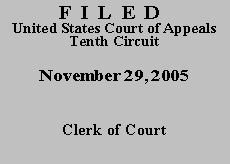

| UNITED STATES OF AMERICA,
Plaintiff-Appellee, v. EWING HIRATA VISE, Defendant-Appellant. |
|
Defendant-appellant Ewing Hirata Vise, a federal prisoner proceeding pro se, appeals the district court's order denying his motion to vacate, set aside, or correct his sentence, filed pursuant to 28 U.S.C. § 2255. Mr. Vise was convicted on guilty pleas of manufacturing methamphetamine and possession of a firearm by a convicted felon. He was sentenced to 188 months' imprisonment following a remand by this court, see United States v. Vise, No. 99-6230, 2000 WL 485174, at **1 (10th Cir. Apr. 25, 2000), and that sentence was affirmed on a subsequent appeal, United States v. Vise, 21 Fed. Appx. 827, 828 (10th Cir. 2001), cert. denied, 535 U.S. 948 (2002).
The district court granted a certificate of appealability (COA) on the following issues:
R. doc. 191, at 2. Accordingly, this court has jurisdiction to review these issues. 28 U.S.C. § 2253(c)(1)(B) (authorizing appeal from issues for which a COA is granted). We do not consider the other issues Mr. Vise argues on appeal; his petition for issuance of a COA as to those issues is denied.
This court has noted a possible jurisdictional flaw raising the question whether Mr. Vise's notice of appeal was filed timely and implicating the prison mailbox rule. In response to our show cause order, the government concedes that the notice of appeal was timely. Our review of the records showing service and filing dates confirms this conclusion. Consequently, this court has appellate jurisdiction, and we consider the issues covered by the COA.
The first issue was decided against Mr. Vise's position in the interim after the district court granted COA. This court held that "Blakely does not apply retroactively to convictions that were already final at the time the [Supreme] Court decided Blakely, June 24, 2004." United States v. Price, 400 F.3d 844, 849 (10th Cir. 2005), petition for cert. filed, (U.S. May 31, 2005) (No. 04-10694). This holding applies specifically to collateral review of convictions that were final when Blakely was decided. United States v. Bellamy, 411 F.3d 1182, 1186 (10th Cir. 2005). Mr. Vise's conviction became final when the Supreme Court denied his petition for a writ of certiorari on March 18, 2002, more than two years before Blakely was announced. See Price, 400 F.3d at 846 (stating conviction becomes final when Supreme Court denies certiorari). Therefore, Blakely does not apply to Mr. Vise's § 2255 motion.(1) Because we answer the first question of the COA in the negative, we need not address the second question.
The jurisdictional show cause is discharged. The judgment of the district court is AFFIRMED.
Entered for the Court
Paul J. Kelly, Jr.
Circuit Judge
*. This order and judgment is not binding precedent, except under the doctrines of law of the case, res judicata, and collateral estoppel. The court generally disfavors the citation of orders and judgments; nevertheless, an order and judgment may be cited under the terms and conditions of 10th Cir. R. 36.3.
1. Although the COA was issued before the Supreme Court announced United States v. Booker, 125 S. Ct. 738, 755 (2005) (applying Blakely's holding to Federal Sentencing Guidelines), Bellamy also holds that Booker is not applicable retroactively on collateral review. Bellamy, 411 F.3d at 1186-88.